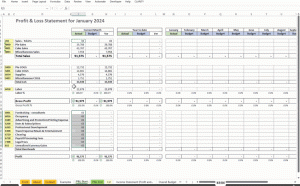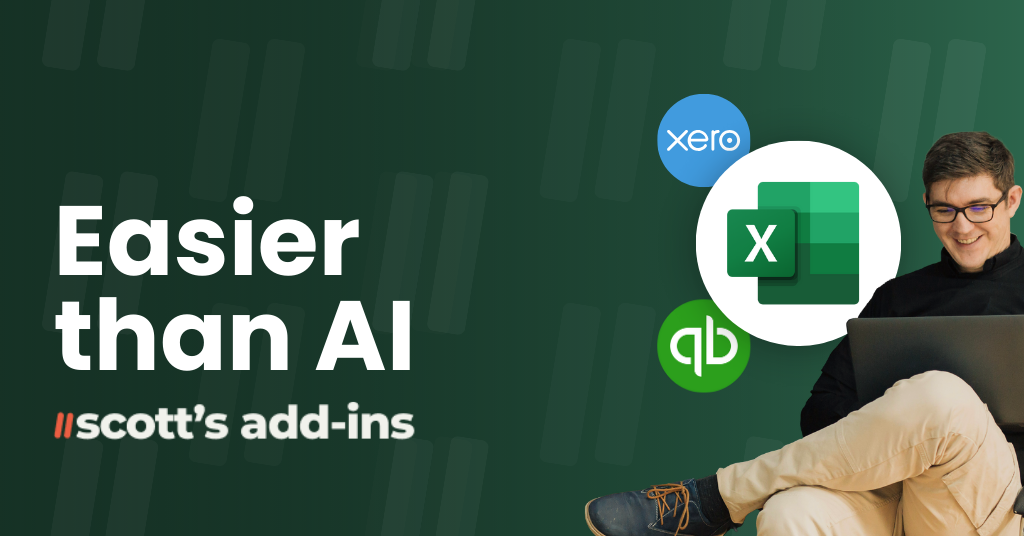What is the right amount of glue to put on a pizza? Recent answers from Google’s AI-overview recently recommended 1/8th cup of non-toxic glue as a solution to cheese falling off. This has been a sobering reminder that when it comes to understanding context, AI has a long way to go – so why is this relevant to accountants?
Well, AI has been floating around as a buzzword in accounting for nearly a decade, ever since a 2017 Oxford study put the profession high on a list of automatable industries.
For a long time, most of this could be put down to tech firms trying to sound innovative, but ever since ChatGPT hit the scene in 2022 the conversation has kicked into overdrive.
According to reporting this year, 73% of accounting firms are not using AI, but that hasn’t stopped companies from slapping the words AI on all their products and calling them ‘transformative’. And let’s be honest – AI will undoubtedly change the profession.
Even earlier, cruder forms of automation such as OCR have now become commonplace – and as more financial data moves to digital format, from e-receipts to remote services, the role of smart machines is only going to grow. Even if those machines currently have a habit of making bizarre mistakes (but Excel errors are nothing new either).
However, it behooves us to take the claims of those with a vested interest in flogging products with a pinch of salt.
Are these AI tools really delivering value, or are they just repackaging old, ineffective methods?
We’ve already seen years of apps telling us that their tools are ready to automate the onerous process of producing client reports – does AI really change their highly visible flaws?
Let’s look at the case for AI and see if it holds water.
The Argument for AI
Proponents of AI-powered reporting argue that these tools can quickly analyze vast amounts of data, identify trends, and generate insights that would take humans significantly longer to produce.
The promise of improved efficiency, real-time analysis, and deeper insights is certainly appealing.
Major tech providers are leading the charge, integrating AI into reporting software and ledgers to automate the generation of insights and recommendations, aiming to enhance decision-making processes and save time at scale. It’s unquestionably true that AI can review and process data faster than humans – the question is ‘How useful are the outputs?’ And here we run into familiar roadblocks.
Why The Bots Fall Short
Despite the claims of luddism within the industry, automation is nothing new for accountants. The most basic form is the simple Excel formula – no one is sitting down with an abacus, pen and paper to work out their customers working capital ratio.
When looking at the capabilities of the latest generation of AI tools, there are some structural roadblocks that echo the existing weaknesses of automated reporting software.
The Need to Train AI Doesn’t Save Time
Despite the initial appeal, AI-powered reports require substantial training to be effective. AI systems do not inherently understand the nuances of different industries and business contexts.
Significant time and effort will be needed to teach the AI to interpret data in the appropriate form, context and needs of your clients. And much like existing reporting solutions, the outputs often need extensive manual adjustments to be genuinely useful.
Once you’ve tailored the model, re-submitted queries it misunderstood and reformatted the output, how much time are you really saving?
Business needs don’t stand still
Business, economic and commercial environments are highly dynamic, with needs and contexts constantly evolving. Each change necessitates adjusting the AI model, making it impractical to provide the AI with all necessary information every time.
Think of how much information passes between you and your client each time you review the quarter-ahead’s goals.
In the space of a month, you might have to account for a team member leaving, an increase in the price of raw materials, delays on multiple SKUs in the supply chain and a changing season leading to increased demand for certain products.
The human mind can take all that in and immediately reconcile it with existing information and adjust your approach going forward. Writing all of this down, along with existing context and instructions to loop in your AI companion so it can come up with the formulas you already know that you need is harder, if anything.
The Long-Term Disintermediation of Accountants
A bigger picture issue is the long-term risk of sidelining accountants. Conversationally and socially, these tools are being positioned as an analogue for the skills and insight of experienced professionals.
The truth is that while AI tools might do well at generating data and identifying trends, they lack the human understanding necessary to interpret and contextualize this information meaningfully. Accountants offer nuanced, informed insights that AI cannot replicate, providing a level of understanding and personalisation that automated systems fail to achieve. The more we pretend otherwise, the more we build a future of SMEs turning to bots for their most important questions.
How to Deliver Truly Custom Solutions
AI has a role to play in the future of accounting, but at least in their current iteration, producing value-driving reports isn’t it. But technology can still help your workflow.

1. Skip the AI time-to-value
With Scott’s Add-Ins, accountants can seamlessly sync live data from Xero and QuickBooks directly into Excel. This setup eliminates the need for constant AI re-training and allows for direct, real-time updates. The result is a more streamlined workflow that enhances efficiency and accuracy, while focusing attention on client needs.
2. Answer questions that matter
By using the familiar environment of Excel, enhanced with Scott’s Add-Ins, accountants can work more responsively and agilely with clients.
This setup supports the creation of bespoke reports tailored to the specific needs and contexts of each client, ensuring that advice is actionable and grounded in a deep understanding of the business.
There’s no need to reset an AI model for every new scenario; instead, accountants can apply their expertise directly, delivering high-value insights quickly and effectively.
So what’s next?
When we look at the claims of the technology industry on AI reporting, they fall short in practice due to the significant training required and the inability to adapt to dynamic business environments.
That said, AI will certainly have a key role to play in the gathering, digitizing and preparation of raw data, but the needs of SME reporting are best served with a human in the driving seat.
The flexibility and depth of understanding that accountants provide cannot be replaced by automated systems.
For those looking to enhance their reporting processes, exploring the capabilities of Scott’s Add-Ins with Excel can be a game-changer you need, enabling the delivery of tailored, insightful reports without the inefficiencies of AI.
Why not book a free trial today?
Curious about how it works? Here’s how simple it is to create custom, smart reports–without AI ⬇️
